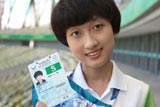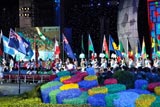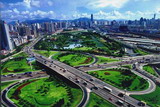Still plenty of Games tickets
Updated: 2011-08-04 09:44
(sz2011.org)
There are still plenty of tickets for most Universiade events after tickets began selling July 11, a press conference was told Wednesday,August 3th.
"With the Games less than 10 days away, there are tickets for a total of 348 events in 23 sports," said Games spokeswoman Wang Mei.
Wang said tickets for popular sports such as track and field, gymnastics and swimming had been selling well.
"People will not need to pay for sailing events, the 20-kilometer walking race, half marathon, open water swimming, road cycling and mountain bike race," she said.
There are no tickets for indoor shooting. She suggests online buying is more convenient.
There will be 23 ticket offices, including 160 counters near the Games venues, which are expected to provide no less than 1.8 million tickets.
Wang Zhi, director of the Games tickets center, said tickets for the finals in diving and basketball had sold out.
"We will provide more tickets for popular sports from Aug. 7," he said.
He said 80 percent of the tickets cost less than 100 yuan (US$15).
Tickets could not be refunded or transferred if an event was postponed. However, if an event was canceled, people would be entitled to refunds 90 days after the Games close.
The odds are high for unsettled weather during the Games, but the organizing committee would keep residents up to date with any change to events, Wang Mei said.
Priced from 30 to 300 yuan, the Games tickets are available at 31 outlets of China Merchants Bank (CMB) in Shenzhen, as well as 10 CMB outlets in Dongguan, Guangzhou, Foshan, Beijing and Shanghai.
They are also available at Shenzhen Airlines ticket offices, Shenzhen Youyi bookstores, Shenzhen Concert Hall and Shenzhen Poly Theater.
There are also online sales at www.szpiao.com.cn.
Detailed information on ticket offices is available at www.sz2011.org.
Video

Working as a Universiade volunteer

Party starts as Universiade ends

Sumptuous seafood in Shenzhen

Athletes test doping knowledge
About Shenzhen

